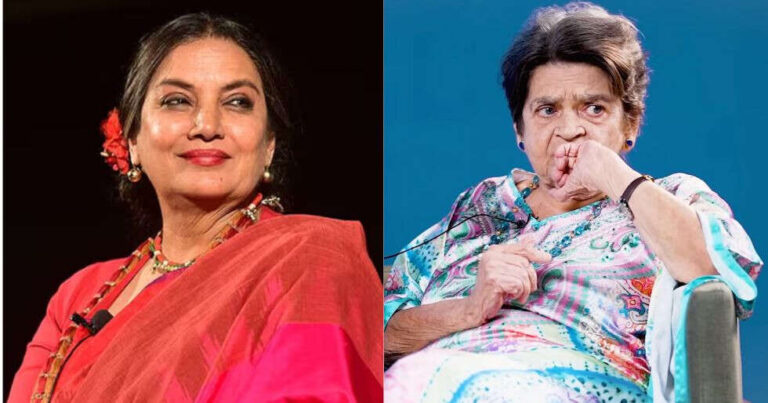Within the emotionally uncooked breakup scene from Sai Paranjpye’s Sparsh (1980), Shabana Azmi delivers a masterclass in restraint, realism, and deep emotional complexity, proving as soon as once more why she stands as certainly one of Indian cinema’s most nuanced performers.
Not like typical portrayals of heartbreak that depend on tears and dramatics, Shabana’s method is nearly meditative. As Kavita, a widowed instructor at a faculty for the blind, she conveys a lady torn between affection and dignity. Her physique language all through the scene is grounded. She doesn’t flail or overreact — she feels. That stillness, paradoxically, speaks volumes.
Her silences grow to be a dialogue of their very own — particularly within the moments when Naseeruddin Shah’s character, Anirudh, distances himself out of delight and insecurity. Shabana’s eyes do the speaking. They shimmer with unshed tears, restraint, and quiet devastation.
See Additionally: EXCLUSIVE: Shabana Azmi on Re-Releases: “Humlog kahani sochte hi nahi”
Sai Paranjpye thinks that Azmi understands the craft of underplaying. When Anirudh confronts her together with his perception that she’s serving to him out of pity, the ache that flashes throughout her face is momentary — a flicker, a wound masked shortly by composure. It’s this fleeting vulnerability that makes the viewers ache. Her dialogue supply — smooth, deliberate, but emotionally charged — is devoid of bitterness. As an alternative, there’s a dignified sorrow that lingers lengthy after the phrases are spoken.
In just some minutes, Azmi traverses a large emotional arc: affection, disbelief, ache, and reluctant acceptance. What’s outstanding is how she carries this transition with such emotional fluidity. Every shift is delicate but profound, reflecting Kavita’s inside turmoil — the battle between her love for Anirudh and her realization that love with out respect is untenable.
This scene isn’t just about heartbreak — it’s a few girl selecting self-worth. Azmi does not beg or plead; as an alternative, she quietly refuses to let herself be diminished. That energy, portrayed with out elevating her voice or shedding a single tear, is a strong feminist assertion in a time when feminine characters have been not often given such company.
See Additionally: Best Shabana Azmi Movies

